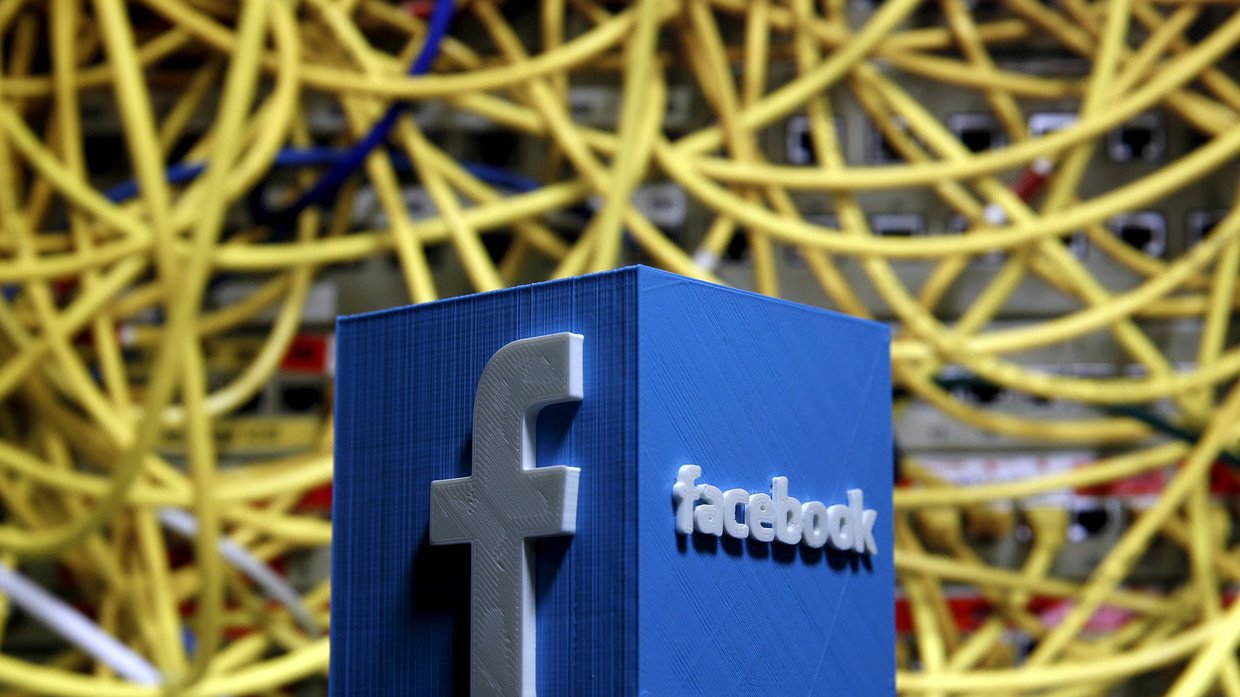Mark Zuckerberg is considering hiring human “editors” to hand-pick “high-quality news” to show Facebook users in an effort to combat fake news — and no, it’s not an April Fool’s joke.
In his ongoing quest to satisfy the political censorship demands of Western governments, Zuckerberg told German publishing house Axel Springer that he is considering the introduction of a dedicated news section for the social media platform, which would potentially use humans to curate the news from “broadly trusted” outlets. Zuckerberg said Facebook might also start paying news publishers to include their articles in this dedicated news section in an effort to reward “high-quality, trustworthy content.”
With social media censorship already at worryingly high levels, who will decide which outlets are “broadly trusted” and which are untrustworthy? What qualifies one outlet as more “trusted” than another? Will Zuckerberg make the criteria public?
Also on rt.com Collective punishment? Zuckerberg’s call for internet regulation is aimed at competitors – analystFresh from the anti-climactic Russiagate saga and long-awaited Mueller report, will Facebook penalize all the outlets that incessantly pushed the Trump/Russia “collusion” narrative and hyped fake “bombshells” for more than two years sans evidence, or will the likes of MSNBC and Rachel Maddow automatically earn “trusted” status? The answer to that question is blindingly obvious.
Facebook’s efforts to combat fake news are reminiscent of other recent efforts from apps like NewsGuard, the US government-linked app which “rates” news websites according to their “trustworthiness” and, unsurprisingly, targets alternative media sites which do not strictly adhere to establishment narratives. If recent history is any indicator, Facebook’s own efforts to rate news will also fall directly in line with US government objectives.
The social media giant has been rightly accused of blatant censorship on multiple occasions in recent memory — and there doesn’t seem a way that a group of Facebook-hired editors could be trusted to curate the news for anyone, unless it took some serious steps to address its various biases. In fact, even if it did that, isn’t hiring human editors with their own political biases and preferences to sift through all the available news and select the stories deemed fit for public consumption just an Orwellian idea in the first place?
Facebook should probably already be aware of the pitfalls when it comes to hiring human editors for such purposes. During the 2016 US presidential election, the company’s solution to political bias in its trending news section was to fire the human editors responsible for it. Maybe Zuckerberg thinks this time it will be different? Or maybe, and more likely, this is just another PR effort to placate the pro-censorship crowd on Capitol Hill.
Also on rt.com No political bias at Facebook? Employee claims company suffers from liberal mob-ruleThere is no shortage of examples of Facebook censorship at this point. Last year, the platform inexplicably took down the English-language page belonging to left-leaning, Venezuela-based news network Telesur — and deleted the page belonging to Venezuela Analysis, another left-leaning outlet offering commentary critical of Washington's foreign policy in Latin America. The pages were later restored, but Facebook was not forthcoming with an explanation.
Changes made to Facebook algorithms to combat “fake news” in 2017, saw traffic to multiple socialist and government accountability websites plummeting — including Police the Police (a page exposing US police brutality) and the Free Thought Project (which promotes government transparency). Alternative news websites like Truth-out.org, Democracy Now and Alternet also suffered as a result of those algorithm changes.
More recently, Facebook suspended popular pages run by Maffick Media, which is 51 percent owned by RT's video agency Ruptly. Coincidentally, the content on those pages is also highly critical of the US government. Funnily enough, Facebook isn’t often caught censoring popular pages whose content is Washington-friendly. The Maffick pages were later restored, but Facebook forced them to include more explicit information about their funding, which in itself is no big deal, but it is a requirement curiously not demanded of US government-funded or linked pages.
Also on rt.com Zuckerberg asks governments for more internet regulation in self-flagellation exerciseNot only has Facebook been accused of censorship, however, it has also been found to be working at the behest of certain governments — but again, only Washington-friendly ones, of course.
The Intercept reported last year that Facebook met with Israeli government officials and complied with orders to delete the accounts belonging to certain Palestinian activists. Facebook quickly bowed to Israel’s demands after threats that it would be forced into complying with the deletion orders by law if it failed to do so voluntarily.
But things don’t look to be getting any better on the Facebook censorship front since then. A journalist for Israeli news outlet +972 Magazine tweeted on Monday that Facebook was now punishing news sites (in the form of lower views) for publishing content that “could be a negative experience” for users — whatever that means. The content in question was an article by the magazine about Gaza's Great Return march and the casualties inflicted on protesters by the Israeli army.
With such a terrible track record when it comes to political bias and willingness to censor news and information, don’t be surprised if Facebook’s planned “dedicated news section” of “high-quality” information turns out to be a failure.
Danielle Ryan
Subscribe to RT newsletter to get stories the mainstream media won’t tell you.

